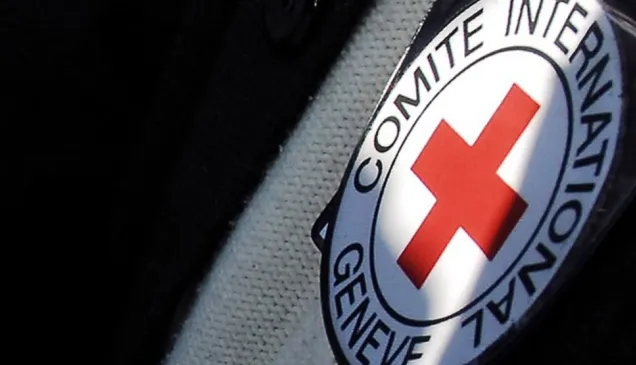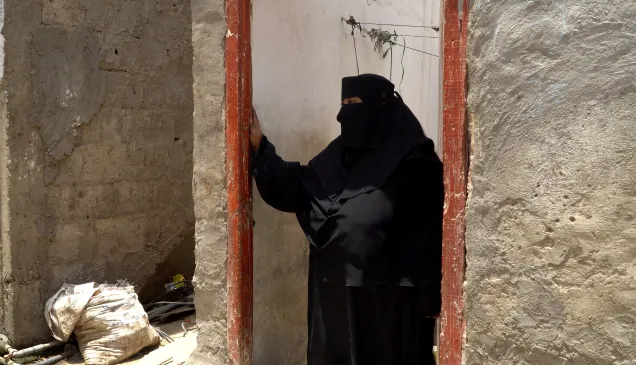There’s an old Yemeni saying that if you truly want to know how people are feeling, you should look into their eyes. The eyes reveal everything. Little Alaa’s eyes have already seen a lot of suffering.
She was only 4 years old when she lost her leg to a shrapnel projectile a year ago. Shortly after, Alaa’s father died of COVID-19.
War in Yemen: Don’t look away from the world’s largest humanitarian crisis
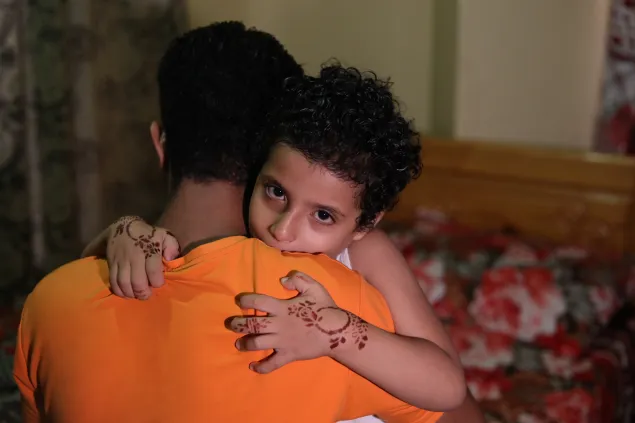
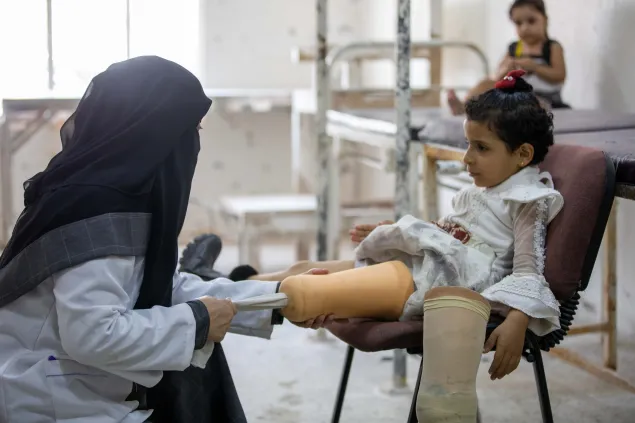
“I was injured by shrapnel pieces, here and here,” she says, pointing towards her legs. Her brother Ahmed took her to the hospital where her leg was amputated.
She got a prosthetic leg fitted and received physiotherapy at a facility for Physical Rehabilitation in Taiz, supported by the ICRC, so that she can walk and remain autonomous.
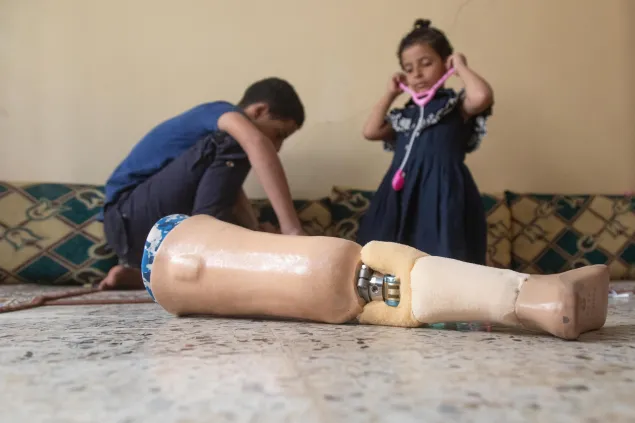
"We give them prosthetics, to let them stand back again and rely on themselves in basic things, such as walking or going to the bathroom. But Alaa, as long as she is a child, she’ll need help.
She needs support, education, and special care. She needs special care as any child who lost a leg.”
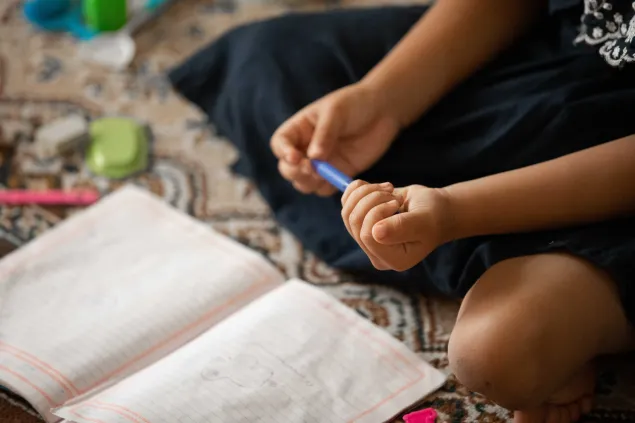
But the invisible wounds must also be healed. “Because of the war, we see many cases, most of which are children with amputated limbs. You feel that their mental health is very bad, that they get impacted harder” says Tahani, a 38-year-old therapist. “Many start to withdraw and isolate. Our duty is to rehabilitate them and bring them back to life.”
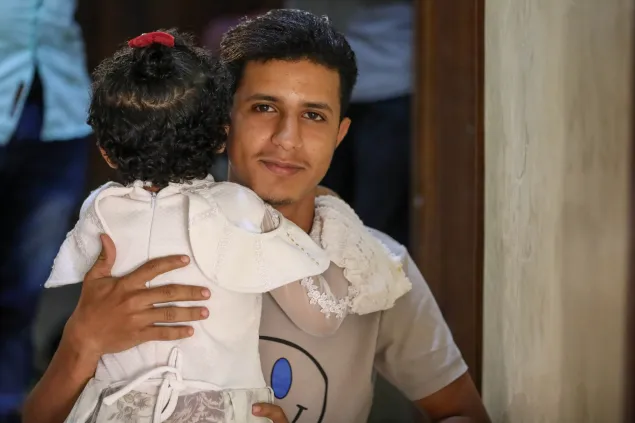
Alaa's brother Ahmed also has trouble coming to terms with what he has experienced.
“I dream about this war and what happened to my sister. I wake up in panic from the sounds of bombing, thinking how it could harm children. I try to look brave for my siblings, but it is a lot for me to handle.
I try to remove the negative thoughts and give strength to my sister, but I haven't been able to do so yet.”
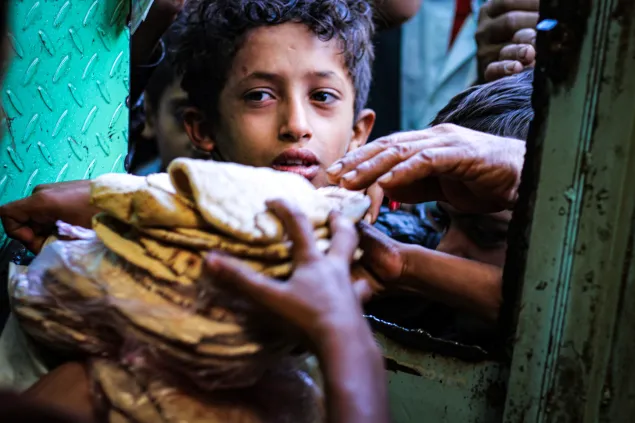
Alaa's story is far from unique and too many Yemeni children are suffering every day. They can barely survive the next day, and struggle to find a perspective for a future. The conflict has taken a huge toll on Yemen’s children. Their education is often interrupted, their lay time curtailed, their childhood irrevocably altered. Projections show that over 2.2 million children suffer from acute malnutrition.
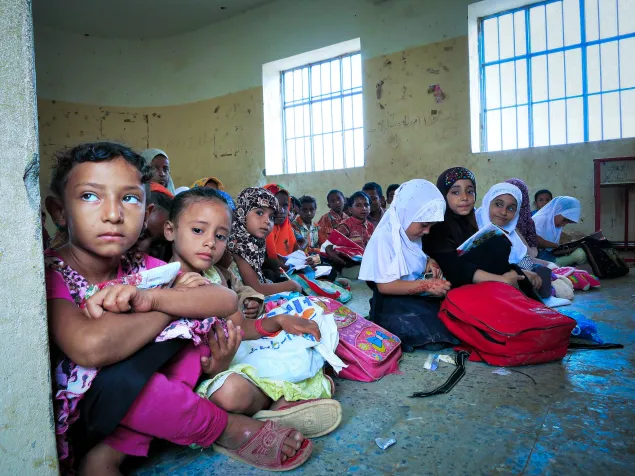
More than 16 million people don’t have a reliable access to food in Yemen, where food prices have skyrocketed by 150%. The country is going through its worst ever cholera outbreak, with more than 2.5 million cases and nearly 4,000 deaths in December 2020.
Cholera, diphtheria and now Covid-19 are compounding, while only half of the health facilities across the country are functional.
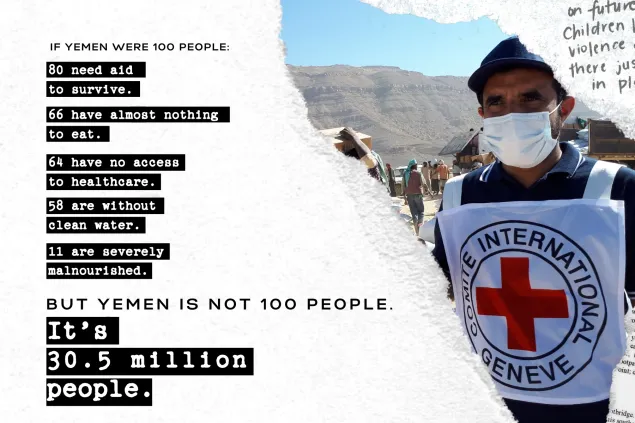
Six years of protracted conflict have killed an estimated 233,000 people, 131,000 of whom died from indirect causes such as lack of health services, infrastructure and food. The people’s capacity to cope continues to erode. Essential services have all but collapsed, leaving millions of Yemenis in a catastrophic humanitarian situation.
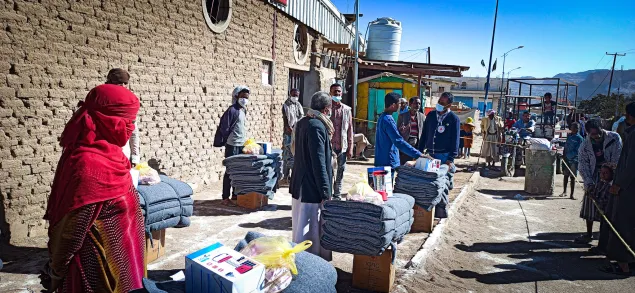
The ICRC provides grants and food parcels to the population to avoid malnutrition and is ramping up its efforts in the face of this looming disaster. But we also call for a collective effort to address this humanitarian emergency.
Right now, our help is urgently needed, and every kind of support can make a huge impact in this situation. You too can help and donate to Yemen now.
Will you be at our side to help us provide urgent and life-saving humanitarian assistance so that the people in Yemen can see a future again?
Together for the people in need. Let's act now!
Learn more about what we do and how your support can make a difference:
About us: who we are and what we do
In the last 157 years, the International Committee of the Red Cross (ICRC) has focused on helping vulnerable people in conflict zones. As part of our humanitarian mandate, conferred on us by States in the 1949 Geneva Conventions and their 1977 Additional Protocols, we protect the lives and dignity of those affected by armed conflict.
We provide vital assistance and strive to preserve people's autonomy and dignity. The ICRC is the starting point of the International Red Cross and Red Crescent Movement, the largest humanitarian network in the world.
Sign up for our newsletter to learn more and receive regular updates about our work:
3 good reasons to support the ICRC
1. Our historic mandate: The ICRC is a neutral, impartial and independent humanitarian organization whose mandate is to protect and assist victims of armed conflict. States conferred this mandate on the ICRC in the 1949 Geneva Conventions and their 1977 Additional Protocols.
2. We talk to all sides of conflict. Why? Because it saves lives: Speaking to armed groups helps us safely reach vulnerable communities and remind armed groups they must respect schools, hospitals and health workers. We can insist civilians are protected and detainees will be treated well, and we can ensure we are accepted as a neutral and impartial organization.
3. We deliver results. In 2020, over 4 Million people received food or assistance to buy food, over 34 Million people got clean water, proper sanitary facilities or assistance improving their living conditions. In health care, 599 hospitals received supplies and other assistance, including 101 hospitals reinforced with, or monitored directly by ICRC staff, where 132736 operations were carried out and over 4 Million consultancies took place. Among other, we also reunited 1049 people, including 892 children with their families and visited 1043 places of detention.
The ICRC in Yemen – how we are helping
The ICRC has been in Yemen since 1962 and has a permanent presence in several governorates. Since the outbreak of the armed conflict in Yemen in 2015, the ICRC has been assisting victims of armed conflict by providing relief, medical aid, and clean water. It also supports health centers, hospitals, the Local Water and Sanitation Corporations and places of detention, and other activities.
Some of what we have achieved in Yemen in 2020 includes:
The treatment of tens of thousands of war-wounded patients and the provision of services to almost 50,000 people with disabilities.
1,324,123 consultations were given to patients in 83 ICRC-supported hospitals and health centres.
5,811,970 people benefited from the ICRC activities in the field of water and sanitation.
1,643,880 people, including these displaced, received various forms of assistance including food, cash grants, essential household items, agricultural and livestock assistance.
More activities in Yemen.
What can I do to help?
Help us raise the funds to continue to provide urgent and life-saving humanitarian assistance in Yemen:
Our work is financed entirely by voluntary contributions - Every donation is important and we are grateful for each contribution we receive. Your generosity will help us alleviate the suffering of conflict victims worldwide and is a source of encouragement to the ICRC and its delegates in the field.
Make a donation today, spread the word and share your action with your friends.


